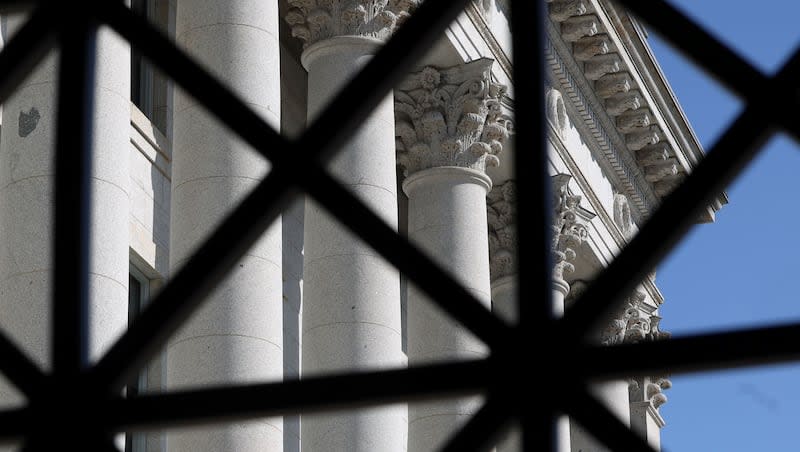Effort to raise vote threshold to 60% on some initiatives stalls in final days of Utah Legislature

Controversial legislation putting an amendment to the Utah Constitution on the November ballot that would raise the vote threshold to 60% to pass some initiatives appears to be stalled in the final days of the 2024 Legislature.
The resolution detailing the proposed amendment that would apply only to citizen initiatives that increase taxes, HJR14, and an accompanying bill, HB284, both sponsored by Rep. Jason Kyle, R-Huntsville, passed the House earlier this month.
But after Senate Majority Leader Evan Vickers, R-Cedar City, raised concerns about what he termed ballot “clutter” hurting the chances of other constitutional amendments passing this year, the Senate sponsor says they won’t get a vote.
“I won’t be moving the resolution forward,” Sen. Lincoln Fillmore, R-South Jordan, told the Deseret News. “I think there is a general sense that the ballot has several constitutional amendments on it already, and that’s probably sufficient to ask of the voters this year.”
Kyle said, “I trust the process. The timing needs to be right for significant policy issues.”
He said it’s too soon to say whether he would try again to win approval for the legislation in a future session. Kyle also attempted last session to get the constitutional change on the upcoming general election ballot.
House Speaker Mike Schultz, R-Hooper, acknowledged the issue may have to wait.
“There’s bills that the House sends over that the Senate doesn’t and there’s bills that the Senate sends over that the House doesn’t pass,” Schultz said. “We understand the Senate’s concerns there.”
The House has concerns, too, “so it’s probably best to just wait and see on that bill and we’ll keep trying,” the speaker said.
“This was one I was sad I wasn’t part of the debate on,” Schultz said. “Because ultimately it’s the voters that get to make the decision on whether or not they want to raise that threshold. And that’s the way it should be.”
Opponents of the resolution point out that the successful 2018 Medicaid expansion initiative that included a sales tax increase would have failed at the ballot box under the higher vote threshold.
Members of the “Let Utah Vote” coalition, described as “dedicated to protecting and progressing the right to vote in Utah,” accused lawmakers of “attempting to take away the voice of Utahns.”
The House approved the resolution and the bill 54-20, with six Republicans joining the Democratic minority in opposition, more than three weeks ago. Kyle said during the floor debate the legislation is about taxes.
“It’s really important that we treat our tax dollars like they’re not our money because they are not,” Kyle said then. “When we’re voting on these things, they’re other people’s money and it should be difficult to raise taxes.”
What’s worrying about trying to make that change this November, Vickers said, is that “too many” amendments “really muddies the field when a voter goes to the polls. So we’re concerned about that, and potentially them just automatically saying no to everything.”
Legislative leaders are counting on voters to approve a constitutional amendment passed in a previous session, removing the requirement that income tax revenues be used only for education and some social services programs.
They’re so eager to see that earmark lifted that an incentive was put in place. If voters approve ending the earmark on income tax revenues, lawmakers agreed to get rid of the state sales tax on food.

